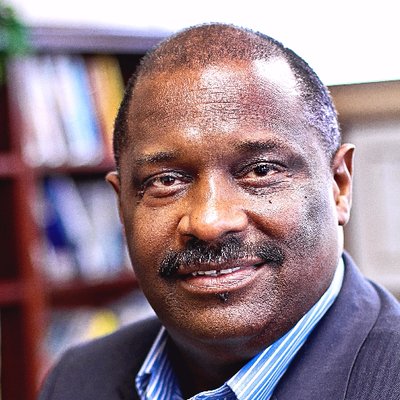
By Mark Croston
Somewhere along the way, many Christians—pastors and lay people alike—have developed a notion that pastors are to be holy superhumans rather than simply humans striving for holiness. Holy superhumans work 24/7, and they never take all their vacation days. They don’t know failure, grief, frustration, disappointment, depression, or discouragement.
But behind the robes, suits, or jeans and golf shirts pastors wear in the pulpit, is human flesh and blood. If we’re cut, we bleed; if we don’t rest, we get tired; disappoint us, and we get discouraged. In the 2022 Greatest Needs of Pastors study from Lifeway Research, we learn that in addition to what might seem like normal ministry issues, 66% of pastors admit trusting God is an issue for them, 63% say they struggle with stress, and 55% say they’re trying to avoid over-working. These are a few of the major challenges in their ministries. Superhuman pastors don’t get to show their weaknesses, but humans striving for holiness do.
We are humans.
One of the greatest lessons we learn from the life of Jesus is that ministry must be incarnational. This message is woven throughout the pages of the Bible from beginning to end. Why did Jesus, the Son of God, put on human flesh? One reason is that we cannot be what we cannot see. Jesus’ life on earth clearly shows us how to live holy, human lives.
One of the greatest lessons we learn from the life of Jesus is that ministry must be incarnational. — @crostonmin Click To TweetPastors, we ought to remember the people we serve are struggling too. They are human, and struggles are inherent to the human condition. When preparing sermons, I often look internally at my own struggles, fears, disappointments, and temptations. Whether spoken or unspoken, the people in our churches face the same struggles.
That’s why, as pastors, it’s so important to acknowledge our own needs and fully embrace the incarnation of Jesus. As the writer of Hebrews reminds us, “We do not have a high priest who is unable to sympathize with our weaknesses, but one who has been tempted in every way as we are, yet without sin” (Hebrews 4:15, CSB).
We are not better than Jesus, nor could we ever be better. But by His grace, what we can be is like Him. We can be like Jesus who was hungry (Mark 11:12), needed rest (Matthew 8:24), retreated for prayer (Matthew 14:23), got angry (John 2:15-17), chided the lack of faith of His followers (Matthew 8:26), was frustrated by the anemic progress of His disciples (Mark 6:52), lamented the sinfulness of His generation (Mark 9:19), was troubled by the impotence of the spiritual leaders of His day (Matthew 23:13), and had to deal with the difficulties of discipleship (John 6:70).
Both pastors and churchgoers are struggling. For pastors, admitting their own struggles and allowing for the struggles of their churchgoers can help them more effectively minister to their congregation. Click To TweetThe church is not like a country club for the well but more like a hospital for the sick and wounded who are trying to get well. Jesus explained this to the religious leaders of His day saying, “It is not those who are well who need a doctor, but those who are sick” (Matthew 9:12, CSB).
The apostle Paul embraced the transparency of incarnational leadership saying, “To the weak I became weak, in order to win the weak. I have become all things to all people, so that I may by every possible means save some. Now I do all this because of the gospel, so that I may share in the blessings” (1 Corinthians 9:22-23, CSB).
Sustained by His Word
As incarnate humans leading and serving the church, 48% of pastors are discouraged, 75% are struggling with the apathy of their members, and 63% are struggling with disciple-making skills and strategies. Weary pastor, you are not alone in your struggle. Let the words of Paul encourage you today: “We are afflicted in every way but not crushed; we are perplexed but not in despair; we are persecuted but not abandoned; we are struck down but not destroyed. We always carry the death of Jesus in our body, so that the life of Jesus may also be displayed in our body” (2 Corinthians 4:8-10, CSB).
When I am overwhelmed by my own needs and struggles, I am reminded of the book of Jeremiah. The first 19 chapters were rough, and Jeremiah had every reason to quit. In chapter 20, things come to a head, and Jeremiah tries to abandon his call and leave the ministry. One thing stopped him. It wasn’t that things got better or that he learned a new strategy or even that he spent time in therapy, although we do need all these things at times. It was that there was too much of God’s Word inside of Jeremiah to allow him to leave the ministry he had been called to. Jeremiah explains it saying, “But his message becomes a fire burning in my heart, shut up in my bones” (Jeremiah 20:9, CSB).
After all he faced, the prophet Jeremiah tried to leave his ministry, but one thing stopped him—God's Word inside of him. Click To TweetWe have the Word of God in us too—from our mothers reading the Bible while we were still in the womb; from our first Sunday School classes; from our youth ministry gatherings; from Bible classes, seminary, conferences, and books; and from our private devotions and pulpit preparations.
When I get discouraged, I join Jeremiah in remembering the Word of God. Philippians 1:6 has become so helpful to me when I experience my needs most intensely. When Paul says, “I am sure of this, that he who started a good work in you will carry it on to completion until the day of Christ Jesus” (CSB), I am reminded that in my times of trouble, God is still in control and has work He wants to accomplish through me.
Paul testifies, “But he said to me, ‘My grace is sufficient for you, for my power is perfected in weakness.’ Therefore, I will most gladly boast all the more about my weaknesses, so that Christ’s power may reside in me” (2 Corinthians 12:9, CSB). Every time we acknowledge our own needs, we acknowledge our need for a Savior. After all, if we were perfect, we would not need Jesus.
Every time we acknowledge our own needs, we acknowledge our need for a Savior. — @crostonmin Click To TweetAcknowledging our needs personally, and at times publicly, can be frightening. It is a true act of self-awareness and faith. Know that God uses your acknowledgement of your needs to help move you toward holiness, to help others with similar needs, and to call others to step up and step in to help. Ultimately, He uses our needs for His glory.

Dr. Mark Croston
Mark is the national director for Black church ministries at Lifeway Christian Resources.








